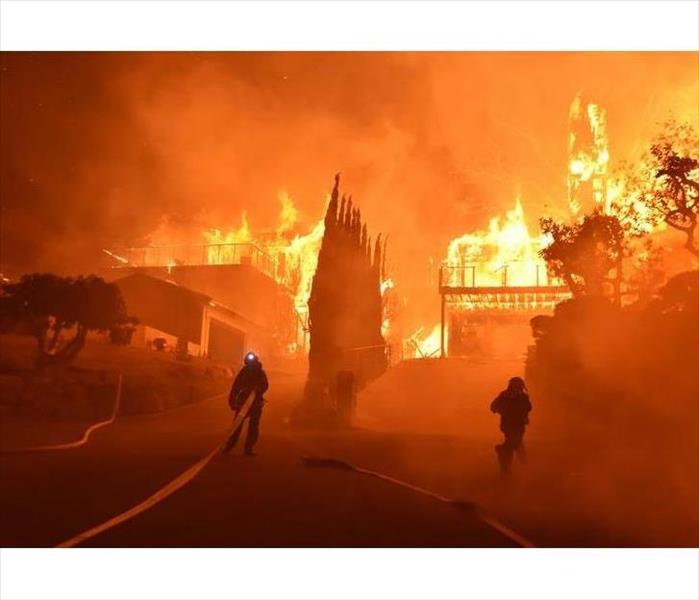How to Protect Your Home from Wildfires
12/7/2017 (Permalink)
With a good portion of Southern California ablaze this week, many homes and buildings have either burnt down completely or have been damaged somehow. Here are some tips on how to help keep your home from being another wildfire statistic.
- Clear combustible debris from your property and home. This can include bushes, dry grass, firewood, and any other plant debris. In some cases, wooden fences or decks may need to be removed.
- Secure your home's eaves and vent openings. Embers can very easily enter your home through unsecured eaves and vents. Keeping them properly screened and maintained will help prevent embers from entering.
- Protect your home's roof. Roofs tend to be the most vulnerable area when it comes to wildfires. Replace any wood shingles if possible. Asphalt, tile, and steel are preferred options. Additionally, pay attention to wood siding, which tends to go up into flames much more easily than cement or stucco.
- Upgrade your windows and drapes. Sometimes the heat can get so intense that it goes straight through the windows and catch drapes and furniture on fire. To prevent this, start by using drapery fabric that is more heat resistant. Smaller tempered window units are also better than larger ones.
- Plan your home to be fire resistant from the ground up. Take the time to protect your dream home from the very beginning. Make sure there is room for emergency vehicles to access the property. Avoid oddly shaped architecture or bump outs as these can reduce the likelihood of embers entering into the home. Research the whatever building materials you intend on using to see if they have flame resistant properties.
- Select a fire resistant site. Keep in mind when either purchasing or building your home that ideally you want it placed in an area that is safe from any potential wildfires. Obviously sometimes a move to a fire prone area is necessary, but just make sure that the home isn't in a densely wooded area, on a hilltop, or overhanging on a rocky outcrop. Having your home in a position like this can make it vulnerable to disaster.





 24/7 Emergency Service
24/7 Emergency Service
